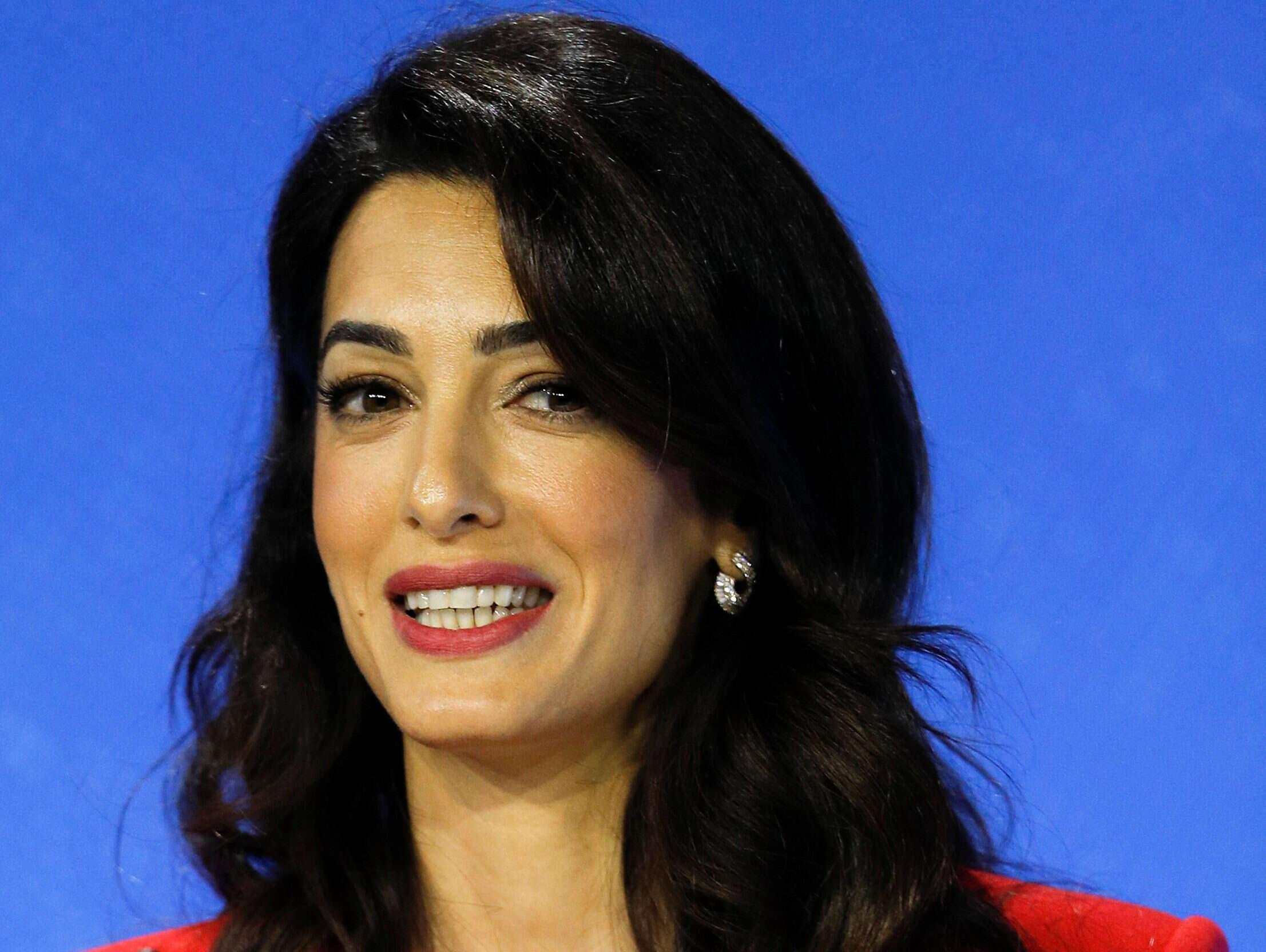
Governments should sanction those complicit in the killing or arbitrary imprisonment of journalists to “shift the default from impunity to accountability”, a new report by human rights lawyer Amal Clooney says.
These targeted sanctions should also be used in response to “serious systemic restrictions on media freedoms” such as internet shutdowns.
The report is the first from the Independent High Level Panel of Legal Experts on Media Freedom, set up last year by the UK and Canada to advise governments on how to better protect journalists and media freedom.
The panel is chaired by former UK Supreme Court president Lord David Neuberger with Clooney (pictured) as deputy chairman. She is also the UK’s special envoy on media freedom.
It recommends that all governments who signed the global pledge on media freedom last year adopt targeted sanctions regimes designed and applied to protect journalists and media freedom as well as respond to other human rights abuses.
The sanctions would involve asset freezes and visa bans against individuals or companies.
In cases of unjust imprisonment, Government policy should be clear that prosecutors, judges and officials could all be found complicit, the report said.
“Such measures would help to ensure that journalists, media professionals and others engaged in journalistic activities can carry out their work without harassment, intimidation, false imprisonment or violent attack,” it said.
Speaking at a launch event for the report at Chatham House in London today, Clooney said threats towards journalists from countries like Malaysia, Saudi Arabia and Brazil constituted a “global gag on speech”.
She added that targeted sanctions would “deter repetition” of behaviours that threaten press freedom through their ability to “name and shame” perpetrators.
“I have seen in my own work as human rights lawyer how useful such sanctions can be… yet this tool is hardly ever used to protect journalists and free speech around the world,” she said.
Filipino journalist Maria Ressa, a client of Clooney’s and founder of news website Rappler, told the event she posted bail eight times to be there.
Ressa is facing a maximum of 83 years in prison after 11 cases were filed against her in 2019, including one exactly a year ago for “cyber-libel”, a crime that had not been enacted when the report was published.
“Please give us new tools to protect press freedom,” she told the event.
Human rights lawyer Irwin Cotler, a member of the panel, said sanctions would “protect, deter, condemn and punish” attackers of media freedom.
“The adoption of such sanctions will send a message to human rights defenders and the journalists among them that they are not alone, that we stand in solidarity with them, that we will not relent in our pursuit of justice on their behalf,” he said.
Only a handful of countries currently have such sanction regimes in place, and only the US and Canada have used them to date.
In the UK the Sanctions and Anti-Money Laundering Act 2018 has received Royal Assent but its sanctions regimes are still awaiting secondary legislation before they can come into force.
Clooney said in her report: “States that say they believe in media freedom should introduce laws and policies that will help to protect journalists in the real world by raising the cost of abusive conduct.
“A consistent use of targeted sanctions when journalists are killed and arbitrarily imprisoned would help to raise international awareness and shift the default from impunity to accountability.
“There is an important opportunity for states to lead with a new paradigm: that when the media is attacked, targeted sanctions will be a counter-attack. Governments that truly wish to protect journalists should seize it.”
Picture: Reuters/Peter Nicholls
Email pged@pressgazette.co.uk to point out mistakes, provide story tips or send in a letter for publication on our "Letters Page" blog
